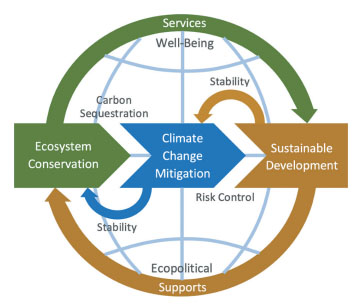Introduction - Toward a Binding Climate Change Adaptation Regime
in Toward a Binding Climate Change Adaptation Regime
There is an almost universal consensus that we already live in a climate changed world. In response, during the last decade the status of adaptation as a policy plank to address climate change has somewhat come to the fore in climate diplomacy. But climate change continues to fit the classical example of Hardin’s (1968) ‘Tragedy of the Commons’, what Stern calls the greatest market failure of our time (2007). Adaptation to climate change impacts as a policy problem appears more diabolical than just reversing the tragedy through closing the free-riding space or correcting the market failure through appropriate instruments. Because of the antecedent deposition of greenhouse gas emissions, climate change impacts are already evident from the increased frequency, severity and magnitude of climate disasters. What to do about these impacts? Many countries are already investing money to adapt to increasing impacts of climate disasters. Whose responsibility is this?
Environment, Climate Change and Migration in South Asia
Edited By Amit Ranjan, Rajesh Kharat, Pallavi Deka
This book presents a comprehensive analysis of the linkages between climate change and migration in South Asia. With help of case studies, it discusses wide-ranging themes like environment, migration, and population displacement; climate change induced migration in Afghanistan; new migration crisis in Bangladesh; climate change and refugees in Bhutan; gendered perspective of displacement in India; deforestation, riverbank erosion and migration in India; internally displaced persons (IDPs) of the Maldives; migration, mitigation and legal framework in Myanmar; climate change and human mobility in Nepal; Pakistan’s climate migrants; and vulnerability and resilience of Sri Lankan migrants. Part of Migrations in South Asia series, this topical book will be an essential read for scholars and researchers of migration studies, diaspora studies, refugee studies, climate change and environment studies, sustainable development studies, public policy, and development studies.
Responses to climate change mitigation during recessionary times
Edited By Gustav Visser, Sanette Ferreira
The new millennium has been characterised by several crises ranging from dramatic acts of terror to natural disasters, as well as the most significant economic recession since the late 1920s. However, despite such challenges the global tourism system has in the main retained its past vitality although in some cases in a different form. The book investigates different kinds of “crisis” and unpacks understandings of crisis in relation to various components in the contemporary tourism system.
Climate change mitigation projections for ASEAN
Published in Journal of the Asia Pacific Economy
Rajah Rasiah, Abul Quasem Al-Amin, Anwar Hossain Chowdhurry, Ferdous Ahmed, Chen Zhang
The economics of leadership in climate change mitigation
Published in Climate Policy
Can Corporations Have (Moral) Responsibility Regarding Climate Change Mitigation
Published in Ethics, Policy & Environment
 China
China  Africa
Africa 

